University students seek enrollment counsellors who offer clear guidance, personalised support, and transparent communication. Meeting their expectations means fostering trust, providing timely insights, and simplifying the enrollment process to create a seamless and engaging student experience.
Table Of Contents
- 1Introduction
- 2Student Expectations vs. Traditional Outreach: What Matters Most in Enrollment?
- 3What do Enrollment Counselors do, & How can AI solutions help in their priorities?
- 4How Can AI Solutions Help Enrollment Counsellors?
- 5Smarter, Faster, Easier: How AI is Transforming College Admissions
- 6Summary
Introduction
In today’s fiercely competitive educational landscape, enrollment counsellors are not just helpful—they are mission-critical. They are the front-line navigators guiding students through one of the most complex and high-stakes journeys of their lives: getting into college. From the first inquiry to the final decision, these professionals are the bridge between a student’s ambition and institutional enrollment goals.
Their impact is measurable and profound. High school seniors who engage in one-on-one sessions with counsellors are 6.8 times more likely to complete the FAFSA, 3.2 times more likely to attend college, and twice as likely to enroll in a bachelor’s program. These numbers underscore a more profound truth: counselling isn’t just about answering questions—it’s about shaping futures.
But here’s the catch: the system is strained. The American School Counselor Association (ASCA) recommends a counselor-to-student ratio of 1:250. The actual average is 1:408 nationally, and 1:311 in high schools. This mismatch highlights a growing gap between student needs and institutional capacity.
That’s where enrollment counsellors step in—not just to fill the gap but to strategically guide students through the enrollment funnel with personalised support, timely information, and genuine human connection. As popular majors like those in STEM become increasingly competitive and nuanced, the role of an enrollment counsellor shifts from administrative to transformational. Their guidance is what turns applications into admissions—and aspirations into achievements.
Student Expectations vs. Traditional Outreach: What Matters Most in Enrollment?
Students in U.S. universities prefer digital engagement over traditional methods. While brochures and mailers remain valuable for parents and branding, Gen Z and Millennial students increasingly rely on real-time, interactive, tech-driven enrollment experiences.
| Factor | Student Expectations | Traditional Outreach |
| Guiding Students through the Enrollment Funnel | Students expect proactive, step-by-step support from awareness to enrollment. | General materials and sporadic counsellor interactions lack continuous guidance. |
| Making them aware of course viability | Students want insights into program value, outcomes, and relevance to current job markets. | Brochures provide static information with little context on program success or ROI. |
| Personalised Guidance | Students expect customised academic and career counselling. They seek one-on-one interactions tailored to their goals. | Brochures provide generic program details but lack personal engagement. |
| Digital Communication & Speed | U.S. students prefer instant responses via live chat, WhatsApp, and email rather than waiting for calls or in-person visits. | Traditional mailers are slow, and students rarely use printed content for immediate information. |
| Financial Aid & Scholarship Support | Students rely on enrollment counsellors for real-time updates on scholarships, FAFSA, and work-study options. | Printed materials list financial aid options but lack up-to-date scholarship availability. |
What do Enrollment Counselors do, & How can AI solutions help in their priorities?
Enrollment counsellors are the connective tissue between prospective students and the institution. Their job is not just to enroll students—it’s to guide, support, and influence decisions throughout the enrollment funnel. Here’s what they typically do:
Key Responsibilities:
- Lead Nurturing: Engaging and following up with prospective students via calls, emails, chats, and events.
- Information Provider: Explaining programs, application requirements, financial aid options, and deadlines.
- Application Support: Assisting students with completing applications, collecting documents, and meeting deadlines.
- Personalised Advising: Tailoring conversations to match a student’s academic goals, interests, and background.
- Barrier Removal: Helping students overcome financial concerns, program confusion, or application fatigue.
- Yield Conversion: Turning admitted students into enrolled students by maintaining engagement until classes start.
In short, they are advisors, marketers, and relationship-builders—all rolled into one.
How Can AI Solutions Help Enrollment Counsellors?
AI can be a force multiplier, freeing human counsellors to focus on high-impact work while automating and enhancing the rest.
AI Can Help By:
Automating Repetitive Tasks
- Chatbots and AI assistants can answer FAQs 24/7.
- Automated email/text workflows can follow up with prospects based on behaviour (e.g., “You opened the application page but didn’t finish”).
Predictive Analytics
- AI can score leads based on the likelihood to apply or enroll, helping counsellors prioritise high-intent students.
- Insights into student behaviour (e.g., clicks, downloads, unanswered emails) can inform the next best action.
Personalisation at Scale
- AI can generate personalised communication based on a student’s program interest, location, and stage in the funnel.
- Recommendation engines can suggest relevant programs, events, or scholarships.
Scheduling & Reminders
- Smart appointment schedulers and nudges can remind students to book sessions or submit missing documents.
- AI can send reminders for key deadlines based on each student’s timeline.
Retention Signals Post-Enrollment
- AI can flag students at risk of dropping off before the first day of class, enabling timely intervention.
Smarter, Faster, Easier: How AI is Transforming College Admissions
Expectations of Instant, 24/7 Communication
- In 2023, 50% of college admissions offices reported using AI for reviewing applications. By 2024, this number increased to 80%, indicating a significant shift towards AI integration in the admissions process.
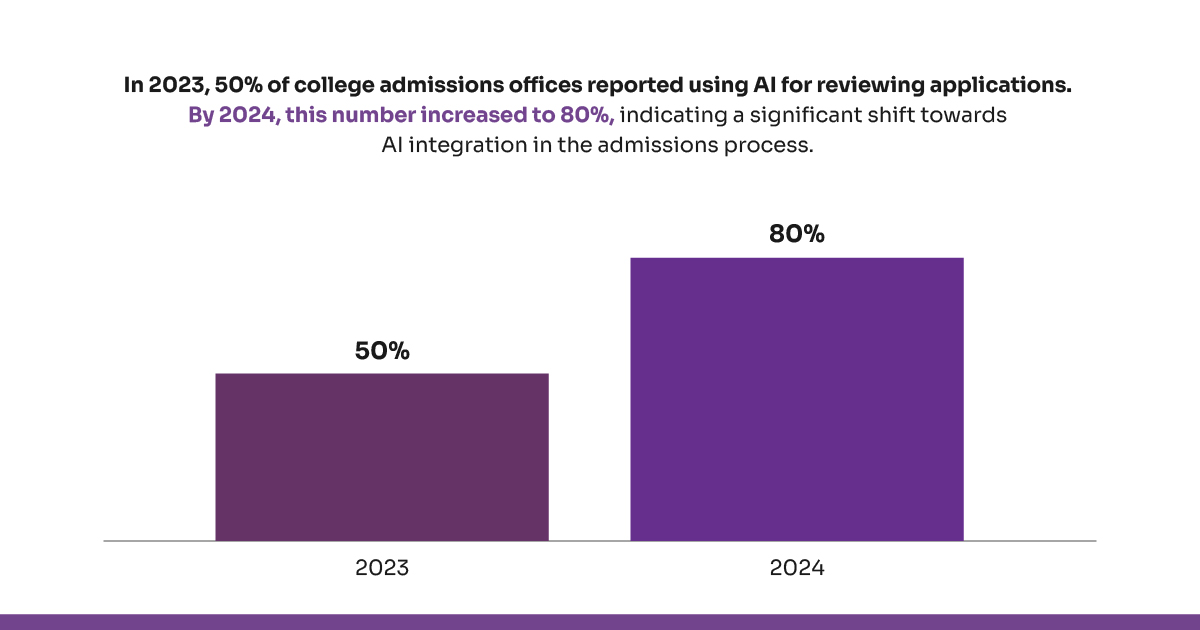
- Students now anticipate real-time, always-available support through AI-powered chatbots, live messaging systems, and intelligent email responses. Similarly, EDMO’s Conversation Intelligence transforms student interactions with AI-powered chatbots and voice assistants. These tools provide real-time, personalised support across various channels, managing everything from admissions inquiries to financial aid guidance. This automation guarantees that students receive accurate information instantly, enhancing their overall experience and boosting institutional efficiency.
Expectations of Personalized Outreach
- A report from Education Dynamics reveals that personalized outreach can increase response rates by up to 35%.
- AI enables tailored communication based on a student’s interests, academic background, location, and application stage, leading to more relevant and engaging interactions.
Expectation of Proactive Guidance
- Modern AI tools can customise messages based on a student’s behaviour, interests, and stage in the admissions funnel. For instance, if a student clicks on a financial aid page multiple times, AI can trigger an email with helpful resources or connect them with a counsellor specialising in aid.
- Students expect institutions to anticipate their needs and guide them without being asked, ensuring they stay on track throughout the application process.
Expectation of Data-Driven Transparency
- A 2023 survey by Inside Higher Ed found that approximately 50% of college admissions offices have integrated AI into their review processes, with an additional 7% planning to do so by the end of 2025. AI is being leveraged to automate transcript evaluations, analyse standardised test scores, and even assess personal essays and recommendation letters.
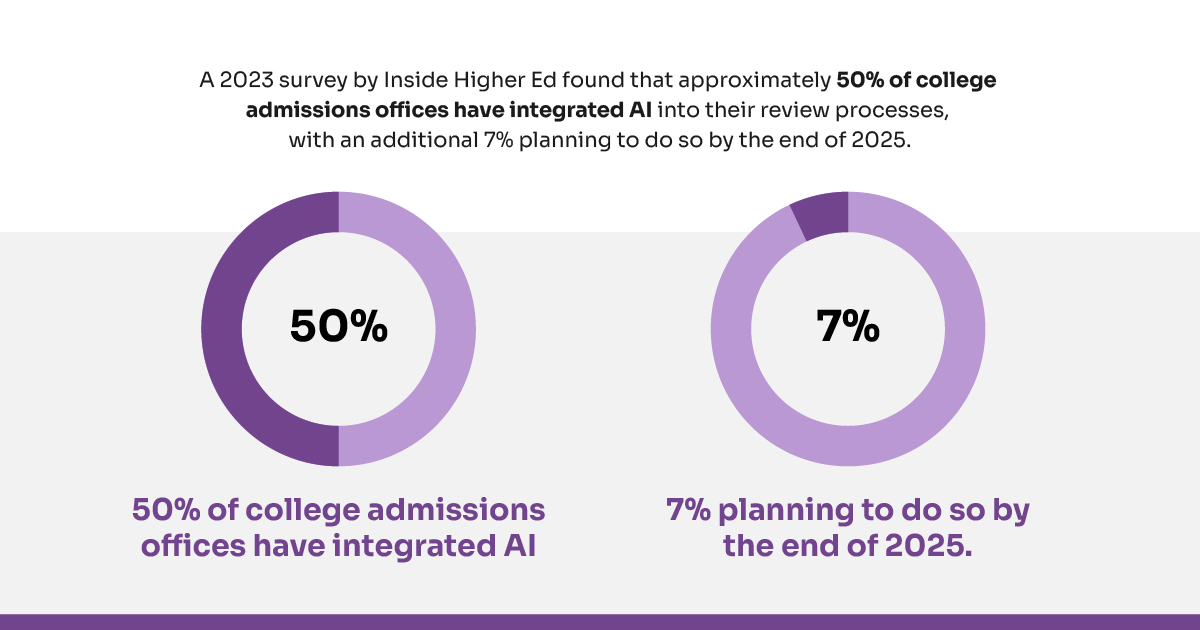
- Students are looking for more than marketing—they want data on ROI, job outcomes, financial aid, and academic fit, and AI provides the tools to deliver this information effectively.
Expectations of Seamless Digital Experiences
- In the 2024 college admission cycle, top U.S. colleges received a total of 7.5 million applications from 1.3 million eligible candidates. This growing influx of applications has led to increased adoption of AI tools to manage and streamline the admissions process.
- Students expect a smooth, consistent, and responsive experience across all digital platforms facilitated by AI integration.
Summary
Students increasingly expect personalized, tech-driven support in the evolving U.S. college admissions landscape. High student-to-counselor ratios—averaging 408:1—limit individualized guidance, especially as competition rises for majors like STEM. Traditional outreach methods, such as brochures, are replaced by AI-powered tools that offer real-time communication, tailored content, and predictive support.
By 2024, 80% of admissions offices will have integrated AI, enabling institutions to provide 24/7 assistance, automate processes, and deliver data-driven insights. Students now demand seamless, responsive experiences across platforms. To meet these expectations, enrollment departments must adopt AI strategies prioritizing personalization, speed, and transparency in the admissions process. Just like EDMO’s Document Intelligence and Conversation Intelligence, both play a crucial role in this transformation. Document Intelligence enhances student engagement and accelerates the enrollment process by providing advanced data analysis and insights. Meanwhile, Conversation Intelligence revolutionizes student interactions through AI-powered chatbots and voice assistants.
Also read: Optimizing student transfers for higher education admissions
The Growing Importance of Micro-credentials in Higher Education
The ROI of Enrollment Innovation: Why Technology Investments Pay Off
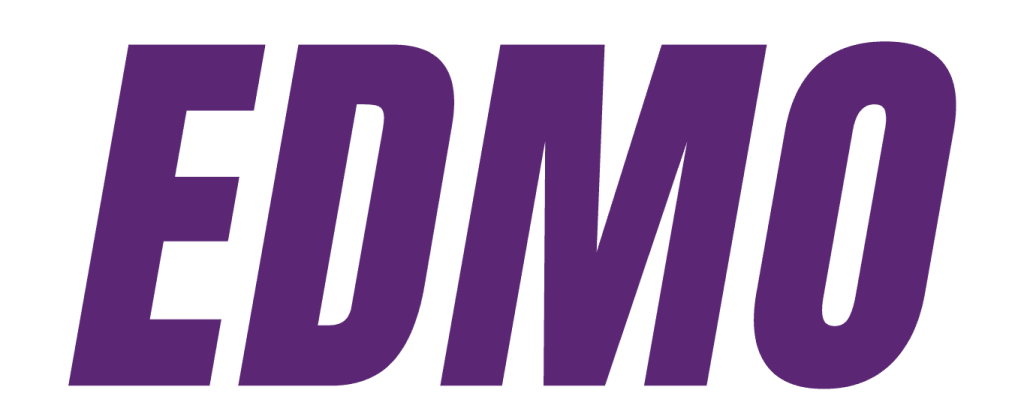

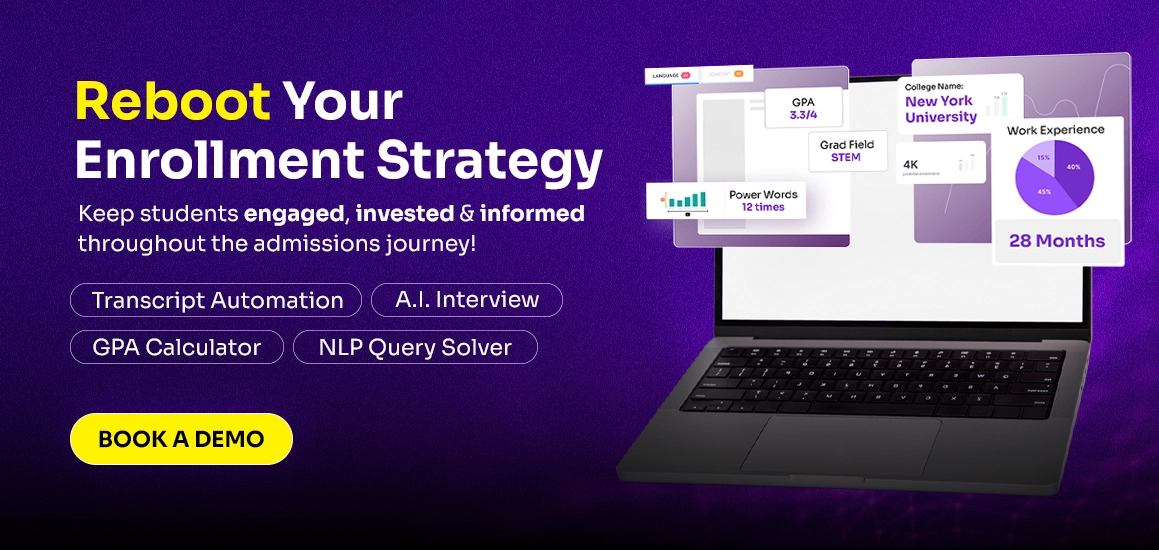


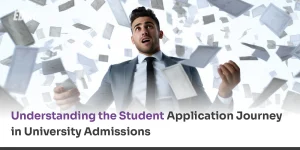
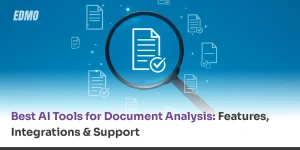
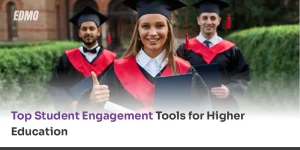
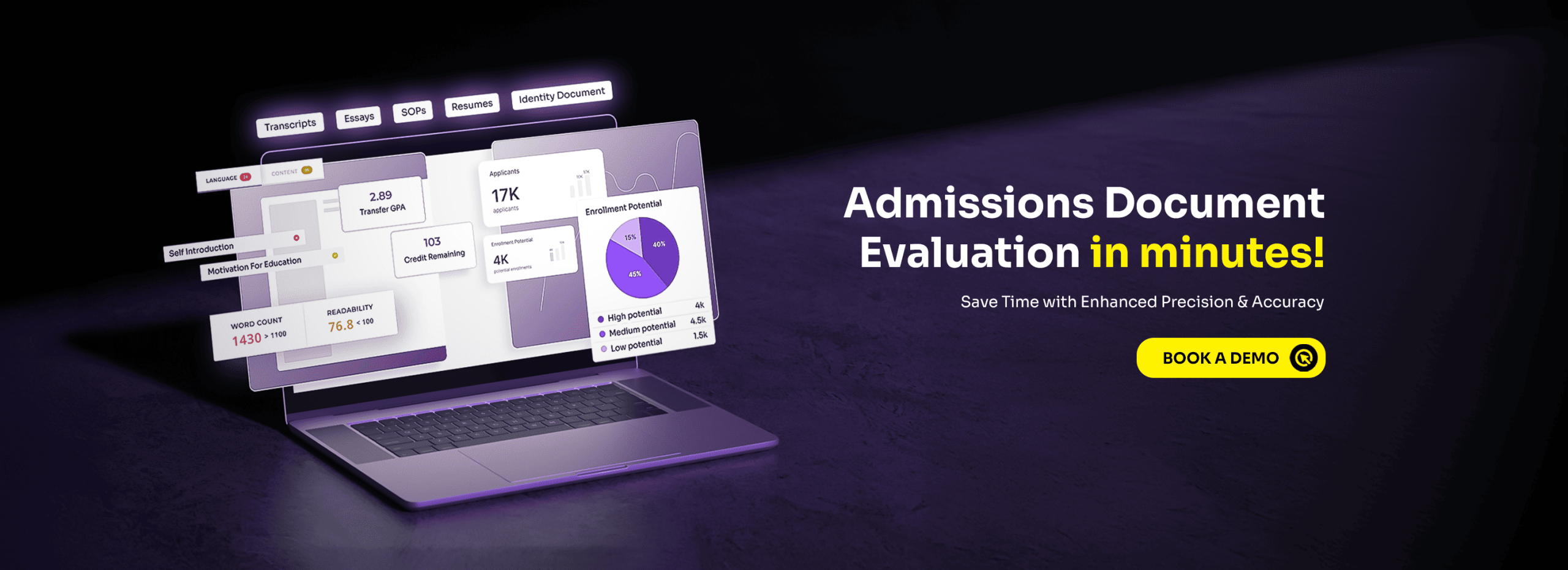
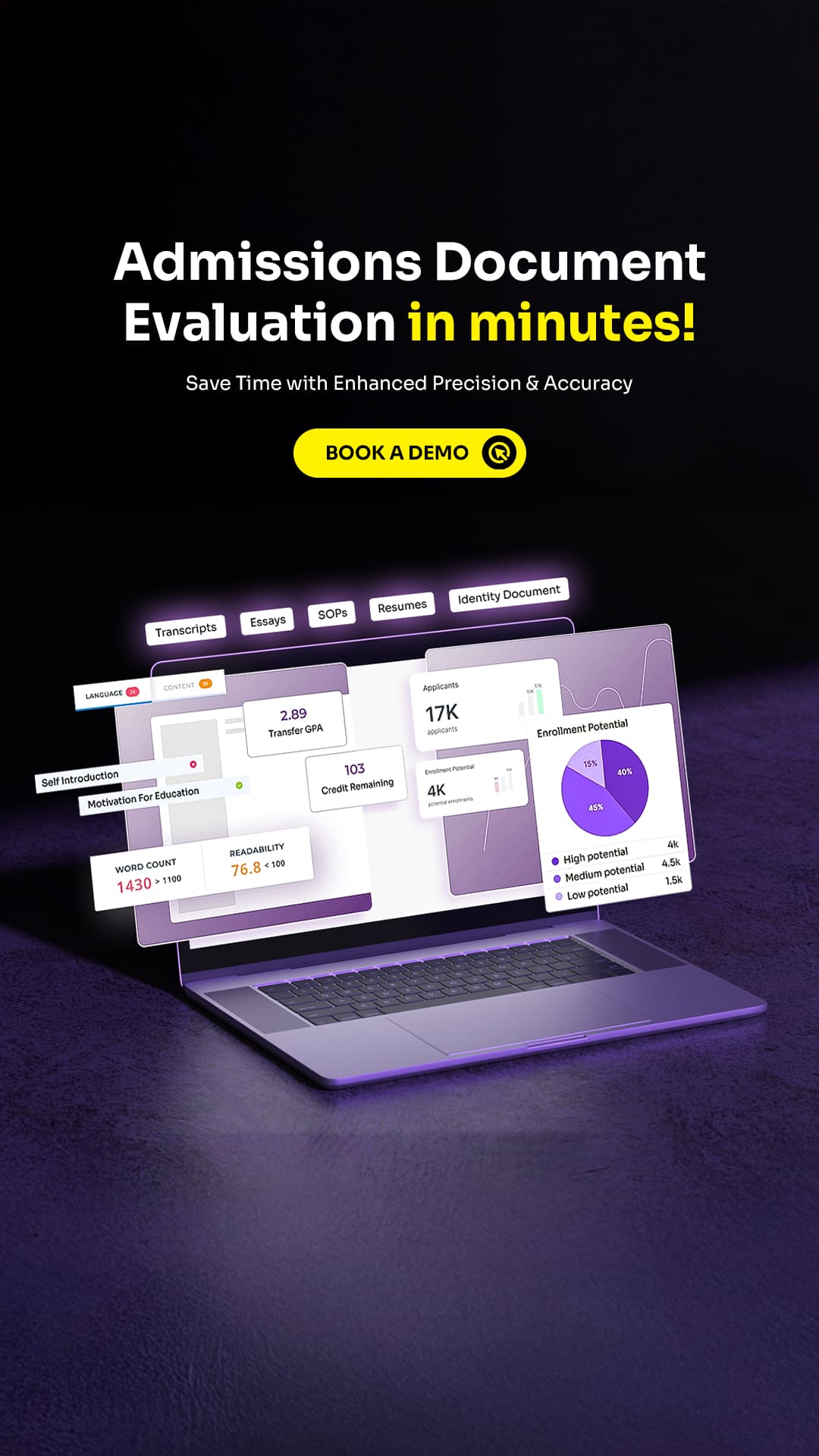
No comments yet. Be the first to comment!
Leave a Comment